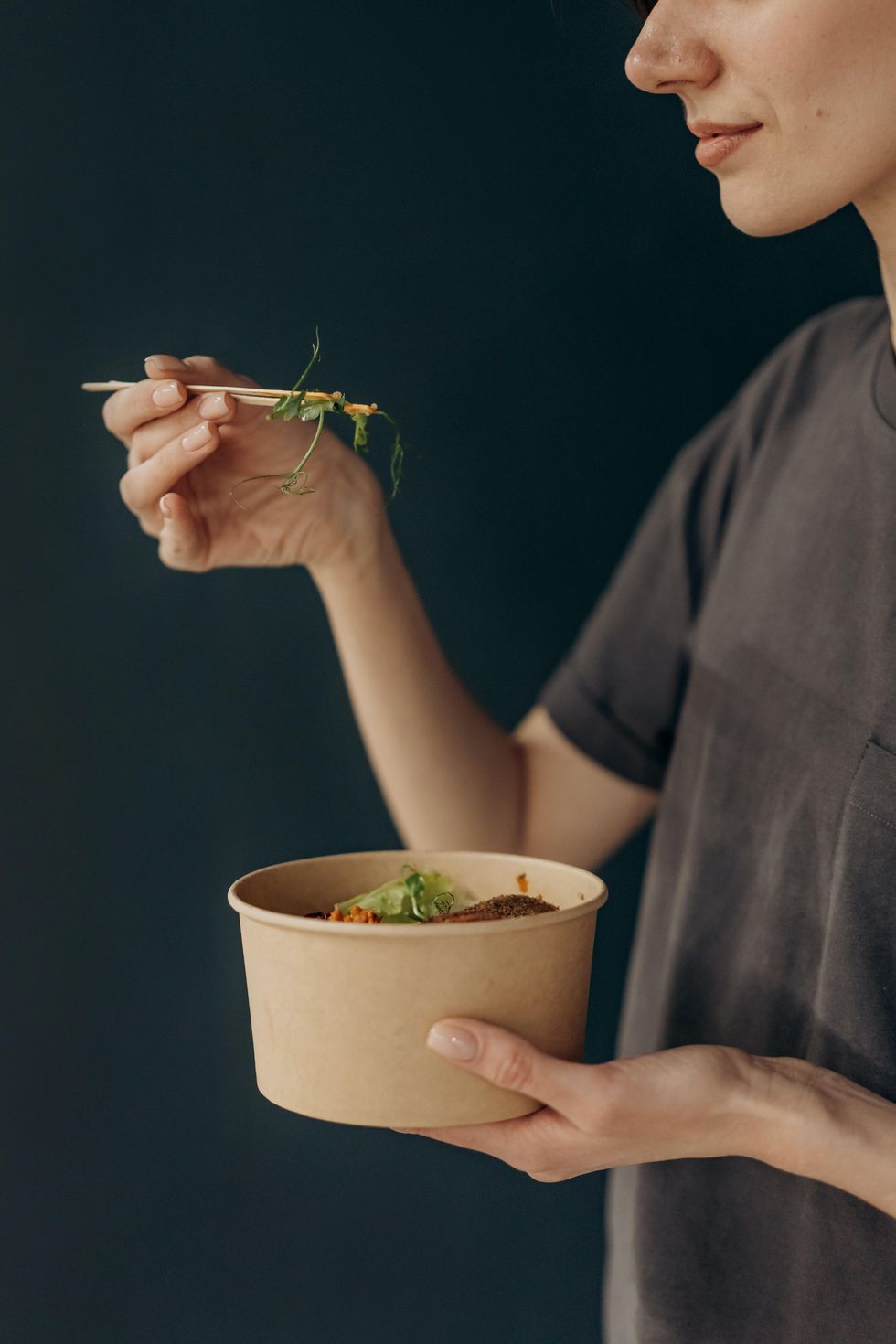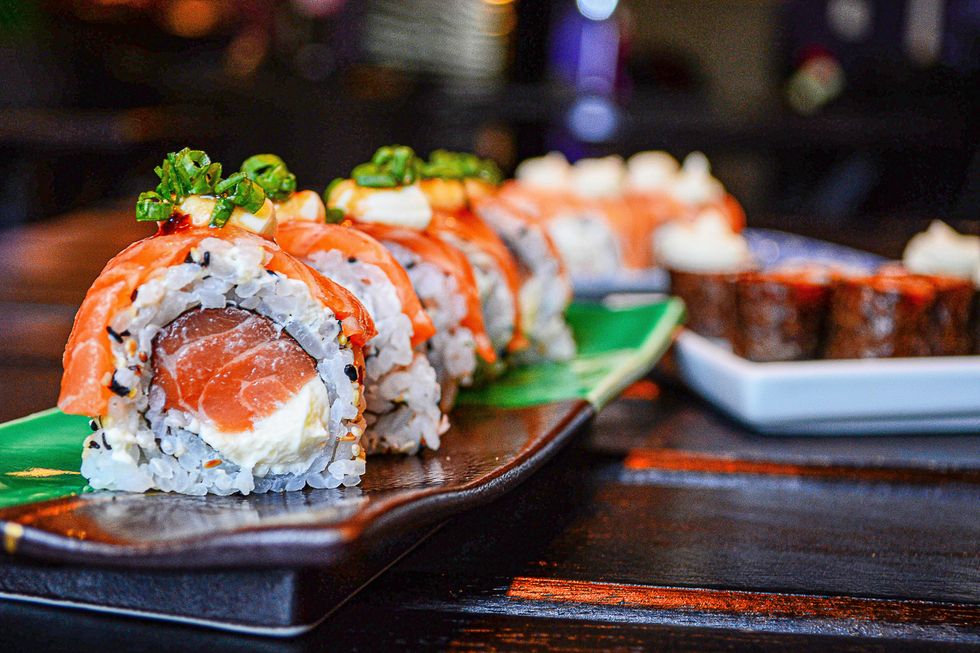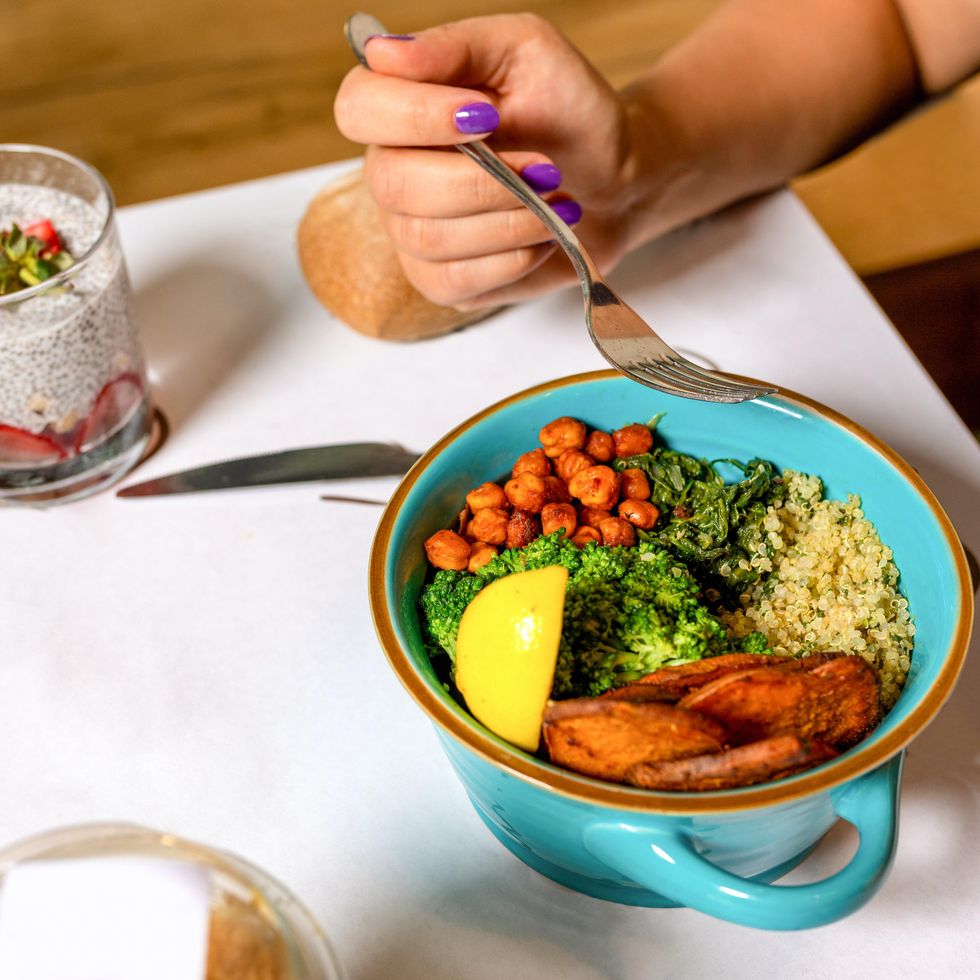Plant-based eating patterns focus on foods primarily from plants such as fruits, vegetables, seeds, nuts, whole grains, beans, and more. Being plant-based doesn't mean that you are vegetarian or vegan and never eat any meat or dairy. Rather, you're choosing more of your foods from plant sources and focusing on these food groups more! Here are some of my experiences with trying to be more plant-based and what you should know when getting started.
1. A general disclaimer about getting started

Everyone's lifestyle is different in terms of the importance of accessibility, health, dietary restrictions, and wellness. For the majority of my life, I couldn't imagine my parents buying entirely plant-based products, especially because of how pricey fresh produce can be. I know that in terms of lifestyle, my boyfriend who plays college football wouldn't be able to be entirely plant-based because of the nutrition he needs for practice and workouts.
But I believe that in terms of being more environmentally friendly and cautious, everything helps, whether you're taking public transportation or cutting down on plastic bags. This article isn't to say that you have to be entirely plant-based to be more environmentally friendly. It's just some tips that I've learned from the early steps of my journey as someone who has the goal of being more plant-based.
2. Advice from my pescatarian "trial run"—buy vitamins

About a month ago in my biology class, we talked about the impact of meat consumption on the Earth. As someone who has eaten both plant and animal products all of their life, I didn't think much of it at first. The environmental problems that corporations create seemed so much more significant than if I were to cut meat out of my diet.
But it turns out our actions and diets can impact the Earth and its inhabitants in big ways too. After that biology class, I challenged myself to be a pescatarian for a week. I figured I would try it for a week before I went home for Easter but I also knew that I couldn't be fully plant-based right away because of the vitamins I needed.
Even then, though, I found myself struggling with constant migraines from a lack of iron. My first tip would be to buy vitamins before you start any type of diet that includes a decreased intake of meat. Now, even though this diet is not entirely vegetarian or vegan, I think it was a step forward in the right direction.
I would like to be more like a vegetarian in the future, but with college vegetarian meals, any college student would tell you that there are not many options (or, good ones at least) on campus. You don't need to be entirely vegan or vegetarian to make a big impact.
Personally, I would recommend cutting out some types of meat first such as red meat or turkey. I have cut most animal milk out of my diet by mostly drinking almond milk, and have tried to stay away from red meat especially. After that week, I gained better insight into what it meant to cut most meat out of your diet and realized that my body actually felt a lot better than before. Not only was this diet good for animals and the planet, but it was good for my body as well.
3. Supplement, supplement, supplement

It depends on how much you're limiting animal meat; you may or may not need to supplement. As I mentioned, my lack of iron and B12 gave me blaring migraines that would impair my ability to complete schoolwork. Instead of being impulsive like me in this situation, make sure you are prepared!
Look for cheap generic supplements at your grocery store to ensure that your body will be able to function throughout this transition period. It's always good to talk to your doctor about possibly running a blood test prior to making any changes, but some important supplements to consider include zinc, iron, omega-3s, and B12.
4. Not all animal protein has to go

I'm going to be honest, I hate tofu and can't stand eating the bland, moist dining hall kind. I've seen Emma Chamberlain make tofu with seasonings and can't help but wonder what it would be like if I had actual good tofu. So whether you're a college student or someone who doesn't have access to a plant-based protein like tofu or tempeh, I completely understand.
To stay up to speed up with your protein intake while being plant-based, don't feel like you completely have to cut out animal protein. Instead, listen to your body and your mind. According to the Better Health Channel, people following a vegetarian or vegan diet especially need to choose a variety of protein sources from a combination of plant foods every day to make sure they get enough essential amino acids.
When you're plant-based, you need those amino acids too! Animal products are very nutrient-dense, and the vitamins they offer can be much harder to get from plant foods. It might be a better idea to slowly ease off of animal products instead of rushing the process.
5. Change the way you think about meat

To reduce your meat consumption, it's a good idea to change the way you think about meat. Rather than consider it the main course in a meal, try to think of it as an addition or side and focus more on vegetables, whole grains, and fruits. Personally, not eating as much red meat and aiming for plant-based alternatives such as black bean burgers has been very beneficial to me.
6. Keep learning and growing throughout your experience

Sure, a few discussions in my biology class were enough to inspire me to learn more about plant-based diets, but videos and creators on YouTube have also helped me learn more. I love Emma Chamberlain's vlogs that almost always include her cooking up a new meal, as well as videos with plant-based and vegan meals from Moya Mawhinney.
In conclusion, being more plant-based can help your body, your carbon footprint, and the planet. Taking small steps can make a big difference, and I've seen it in my lifestyle even if I have just started. I encourage you to look into more resources!



















